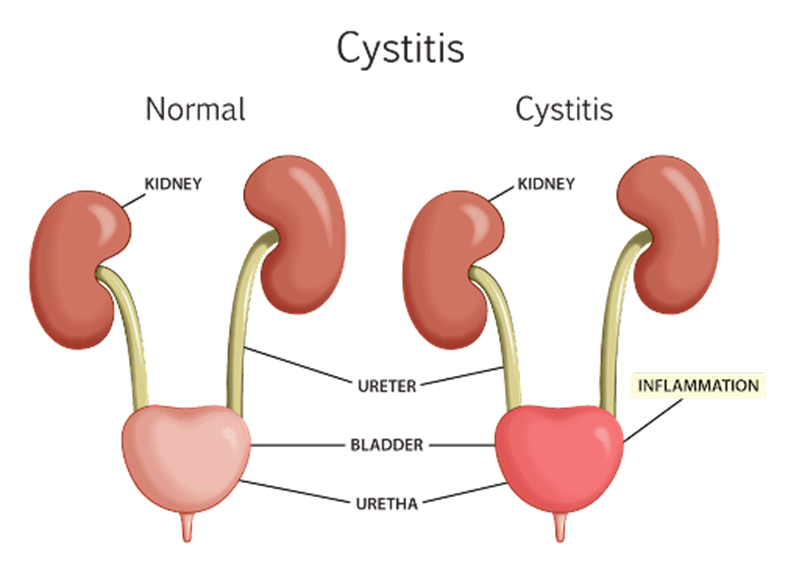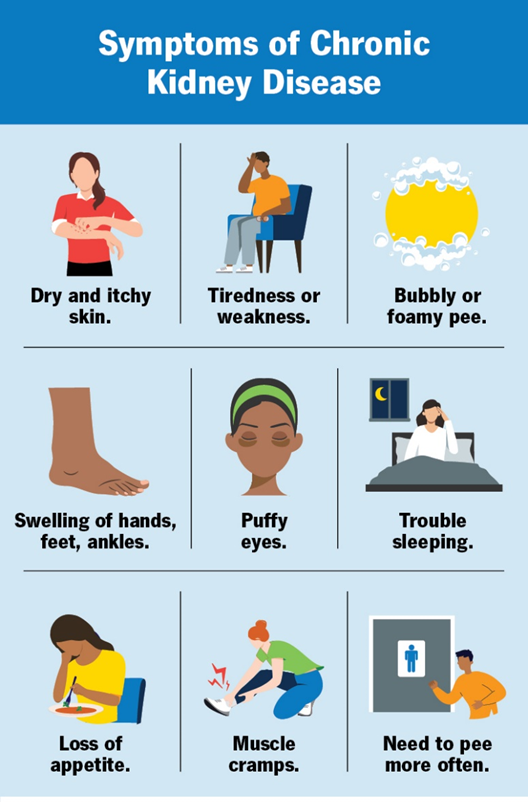A client with cystitis receives a prescription for phenazopyridine. Which information should the nurse explain to the client about its therapeutic effect?
Eliminates urinary bacteria.
Use the medication after voiding after sexual intercourse.
Calms spasms in the urinary tract.
Provides an analgesic effect for irritated bladder mucosa.
The Correct Answer is D
Choice A reason:
Phenazopyridine does not eliminate urinary bacteria. It is not an antibiotic and does not have antibacterial properties. Instead, it is used to relieve symptoms such as pain, burning, and discomfort caused by irritation of the urinary tract. Therefore, this choice is incorrect.
Choice B reason:
Using phenazopyridine after voiding or after sexual intercourse is not a standard recommendation. This medication is typically taken after meals to reduce stomach upset. It is not specifically indicated for use after sexual intercourse, and this choice does not align with the typical usage instructions for phenazopyridine.
Choice C reason:
Phenazopyridine does not calm spasms in the urinary tract. Its primary function is to provide symptomatic relief from pain, burning, and discomfort in the urinary tract. It does not have antispasmodic properties, so this choice is also incorrect.
Choice D reason:
Phenazopyridine provides an analgesic effect for irritated bladder mucosa. It works by numbing the lining of the urinary tract, which helps to alleviate pain and discomfort associated with conditions like cystitis. This is the correct therapeutic effect of the medication.

Nursing Test Bank
Naxlex Comprehensive Predictor Exams
Related Questions
Correct Answer is D
Explanation
Choice A reason:
Resuming a diet that consists of milk, cream, and bland foods is not the most critical instruction for a client taking esomeprazole. While bland foods can help reduce gastric irritation, they do not address the primary concern of monitoring for serious side effects. Esomeprazole is a proton pump inhibitor (PPI) that reduces stomach acid, and dietary changes alone are not sufficient to manage potential complications.
Choice B reason:
Calling the clinic if diarrhea or headache occurs when taking esomeprazole is important, but it is not the most critical instruction. Diarrhea and headache are common side effects of esomeprazole, but they are usually not severe. The client should be aware of these potential side effects, but the primary concern is monitoring for signs of gastrointestinal bleeding.
Choice C reason:
Once pain subsides, NSAID therapy should not be resumed without consulting the healthcare provider. NSAIDs can cause significant gastrointestinal issues, including ulcers and bleeding. The client should be advised to avoid NSAIDs unless specifically directed by their healthcare provider.
Choice D reason:
Notifying the healthcare provider of the passage of black stools is the most critical instruction. Black stools can indicate gastrointestinal bleeding, which is a serious side effect of both NSAIDs and esomeprazole. Immediate medical attention is necessary if this occurs to prevent further complications.
Correct Answer is C
Explanation
Choice A reason:
Calcium acetate is not used to lower potassium levels. Potassium levels in the blood are typically managed through dietary restrictions, medications like potassium binders, and dialysis in patients with CKD. The normal range for blood potassium levels is 3.5 to 5.2 mEq/L for adults.
Choice B reason:
Calcium acetate can increase calcium levels in the blood, not decrease them. It is important to monitor calcium levels to avoid hypercalcemia, which can lead to complications such as vascular calcification and cardiac issues. The normal range for blood calcium levels is 8.6 to 10.2 mg/dL.
Choice C reason:
Calcium acetate is used to lower phosphate levels in patients with CKD. It works by binding to dietary phosphate in the intestines, forming insoluble calcium phosphate that is excreted in the stool. This helps prevent hyperphosphatemia, a common issue in CKD patients. The normal range for blood phosphate levels is 2.5 to 4.5 mg/dL.

Choice D reason:
Calcium acetate does not directly affect blood pH levels. Blood pH is regulated by the kidneys and lungs, and the normal range is 7.35 to 7.45. While CKD can affect acid-base balance, calcium acetate’s primary role is to manage phosphate levels.
Whether you are a student looking to ace your exams or a practicing nurse seeking to enhance your expertise , our nursing education contents will empower you with the confidence and competence to make a difference in the lives of patients and become a respected leader in the healthcare field.
Visit Naxlex, invest in your future and unlock endless possibilities with our unparalleled nursing education contents today
Report Wrong Answer on the Current Question
Do you disagree with the answer? If yes, what is your expected answer? Explain.
Kindly be descriptive with the issue you are facing.
